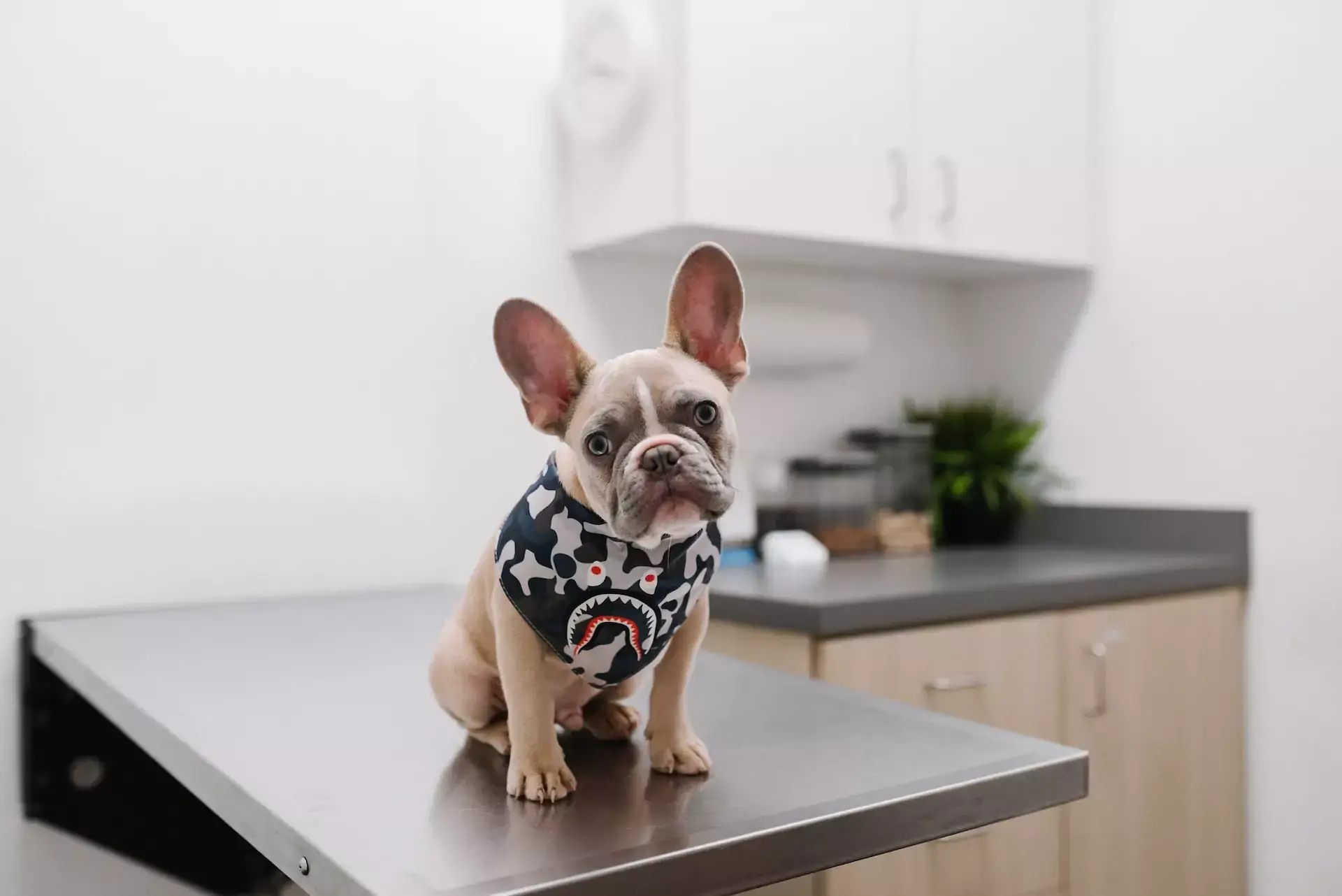Valentine’s Day is approaching, and love is in the air. Stores are filling with romantic trappings, such as flowers and candies. However, when it comes to pets, the focus is actually on stopping those romantic rendez-vous. It’s Prevent A Litter Month, Spay/Neuter Month, and Feline Fix By Five Month. All three of these awareness events share the same goal: reducing the number of unwanted litters of puppies and kittens. A local Carmel Valley, CA veterinarian offers some insight into this topic below.
There Are Health Benefits Of Getting A Pet Fixed
While we would put curbing animal overpopulation as the greater, underlying reason for promoting spaying and neutering, there are also some key benefits for your pet.
Here are a few of the key ones:
Reduce Unwanted Behaviors: Those heat cycles and hormonal urges can come with some pretty messy side effects. For instance, intact male pets are much more likely to spray. They’re also more aggressive, and more prone to things like digging, chewing, and trying to escape. That alone is worth it!
Lower Cancer Risk: Spaying or neutering will reduce the likelihood of your beloved pet developing certain cancers. females will have lower risk of ovarian, uterine, and mammary gland tumors. Males have drastically reduced risks of testicular cancer, while
Longer Lifespan: Pets who have been fixed tend to live longer than those who remain intact. There are a few reasons for this. The dangers of complications from pregnancy and/or delivering are eliminated for females. There’s also the reduced cancer risk we mentioned above. Plus, pets are less likely to roam, which in turn means they are less vulnerable to getting lost, hurt, or stolen.
Getting Your Pet Fixed Can Help Curb Overpopulation
There are millions of pets in shelters or living on the streets. Puppies and kittens are cute, but there are already so many animals that need help. This is definitely a case of a collective effort. Every pet counts! For more information on pet statistics, check out our article on National Pet Week: Pets By Number.
Let’s look at Fluffy and Fido’s reproductive statistics.
Canine Reproduction Statistics
Our canine companions can have about two litters per year, with the average litter size being about six to ten. A single pair of dogs can have 67,000 descendants in just six years! Of course, that’s just an average. Some dogs have way more babies than that. The world record goes to a Neapolitan Mastiff named Tia. Tia had a whopping 24 puppies in a 2004 litter, which earned her a spot in the Guiness Book Of World Records.
Feline Reproduction Statistics
Cats can have three litters a year, which would normally be about 4-6 kittens each. One pair of kitties can have as many as 2, 072, 514 descendants in just eight years! Fluffy can give Tia a run for her money though. Back in 1970, a Burmese/Siamese cat gave birth to 19 kittens!
Puppies and kittens are adorable, but unfortunately, those numbers tie into some much more sobering ones. Every year, about 7.6 million animals enter American shelters. Unfortunately, many never leave: roughly 1.2 million dogs and 1.4 million cats are euthanized annually. That’s not even counting the millions of homeless pets that are out there fending for themselves. It’s a rough life for animals on the street: many live very short, very hard lives.
When Should I Spay/Neuter A Kitten?
Ideally, your feline pal should be fixed before she goes into her first heat, which is around five months. (Hence the Feline Fix By Five Month awareness event.) Cats can get pregnant at just four months old, when they are really still babies themselves. Fluffy can be fixed at just eight weeks old, though many veterinarians now prefer to wait a little longer than that. Talk to your veterinarian, and follow their advice.
Can I Still Get An Adult Pet Fixed?
While it’s best to have pets fixed before they are sexually mature, it isn’t a must: the procedures can still safely be done on adults. Talk to your veterinarian.
When Should I Spay/Neuter A Kitten?
Currently, the AKC recommends fixing small dogs around the age of six to nine months. However, Fido’s size will factor in. For large breeds, you may need to wait longer. Some giant dogs shouldn’t have the surgery until they are 18 months old. Contact your veterinary clinic right away if you notice anything amiss.
Your Carmel Valley, CA veterinary clinic will be able to make a specific recommendation.
Are Pets More Affectionate After Neutering?
Fluffy and Fido are cute, cuddly, and lovable before they are fixed, but don’t be surprised if they are even more so after. Removing that innate hormonal urge to find a mate and reproduce can have a drastic impact on your pet’s behavior.
Dogs and cats that have been fixed are no longer interested in marking their territory or trying to find a mate, so they usually turn their focus on playing, cuddling, and collecting belly rubs. They also tend to be calmer.
How Can I Help My Pet Recover From Spay/Neuter Surgery?
Your veterinary hospital will give you aftercare instructions, often in the form of a care sheet. Follow the instructions to the letter.
Offer your furry friend a clean, quiet, comfy place to recover. (If you’re considering getting a new bed, this is a great time to do it.) If you have other pets, keep them in a separate area for the first few days, and just let your furry patient rest and heal.
As your pet is recuperating, check on them frequently. You will want to keep a close eye on the surgical area. Generally, just watch for any signs of infection or complications. These include the following:
- Redness
- Pus
- Swelling
- Bleeding
- Vomiting
- Fever
- Diarrhea
- Torn Stitches
- Foul Odor
- Lethargy
- Lack Of Appetite
Contact your veterinary clinic right away if you notice anything amiss.
Pets do have a tendency to try to scratch or nibble stitches. Your vet may recommend an inflatable collar or lampshade collar (aka the Cone Of Shame) to prevent them from opening the stitches. Your Carmel Valley, CA veterinary clinic will give you information on this.
How Long Will My Pet Take To Recover From Being Fixed?
It’s worth noting that boys heal faster from the procedure than girls will. Males will be over the healing ‘hump’ in a few days, while females may not be fully healed for a few weeks.
Bonus: Additional Reason To Get Your Cat Fixed
We can’t really discuss spaying or neutering pets without at least touching on one of the less-talked about benefits of getting Fluffy fixed: the fact that you’ll be spared your amorous pet’s horrific kitty love songs. Your feline pal may be super cute and lovable, but her musical capacities definitely leave a lot to be desired. When cats go into heat, they try to attract mates by singing. Or, what they seem to consider singing. Apparently, other felines for some reason find this ‘caterwauling’ appealing. To our human ears, however, it’s more like a low-key torture.
Our Advice on Getting Your Pet Fixed in 2024
Are there any potential risks or complications associated with spay/neuter surgery?
Spay/neuter surgery, while generally safe, carries some potential risks and complications. These can include infection, bleeding, and adverse reactions to anesthesia. Post-operative complications might involve swelling, redness, or discharge at the incision site. In rare cases, pets may experience more serious issues, such as hernias or internal bleeding. To minimize risks, follow all pre- and post-operative care instructions provided by the veterinarian, monitor the surgical site for signs of infection or complications, and ensure pets rest and avoid strenuous activities during recovery. Regular check-ups help ensure a smooth healing process. If you have any concerns about the risks associated with spay/neuter surgery, consult with our Veterinary Surgery team for more information.
Are there any specific pre-operative instructions that pet owners should follow to help ensure a smooth surgery and recovery?
To ensure a smooth surgery and recovery, pet owners should follow specific pre-operative instructions. Withhold food for 12 hours and water for 6 hours before the procedure to prevent complications from anesthesia. Ensure the pet is clean and free from any infections or illnesses by having a vet check-up prior to surgery. Arrange a quiet, comfortable space at home for post-operative recovery. Discuss any current medications with the veterinarian, as some may need to be paused. Following these guidelines helps minimize risks and promotes a successful surgery and recovery.
How long does the spay/neuter surgery typically take, and will pets need to stay overnight at the veterinary clinic?
Spay/neuter surgery typically takes between 30 to 60 minutes, depending on the pet’s size, age, and health. Generally, pets do not need to stay overnight at the veterinary clinic. Most pets are allowed to go home the same day after a few hours of post-operative monitoring to ensure they are recovering well from anesthesia. However, some cases, especially involving older or high-risk pets, may require an extended stay for additional observation. Always follow the veterinarian’s advice regarding post-operative care and monitoring to ensure a smooth recovery.
Are there any specific post-operative care instructions that pet owners should follow?
After spay/neuter surgery, pet owners should follow specific post-operative care instructions. Keep the pet in a quiet, comfortable area to rest, away from other animals and excessive activity. Monitor the incision site daily for signs of infection, such as redness, swelling, or discharge. Prevent the pet from licking or scratching the incision by using an Elizabethan collar if necessary. Administer prescribed medications as directed by the veterinarian. Limit physical activity for at least 10-14 days to ensure proper healing. Follow-up appointments with the veterinarian are essential to monitor recovery progress.
Are there any alternatives to traditional surgical spay/neuter procedures?
Yes, there are alternatives to traditional surgical spay/neuter procedures. One option is chemical sterilization, which involves injecting a solution into the reproductive organs to render them infertile. Another alternative is laparoscopic spaying, a minimally invasive procedure that uses small incisions and a camera for guidance, reducing recovery time and discomfort. Additionally, there are hormone-based treatments that temporarily prevent reproduction. Each method has its pros and cons, and suitability depends on the individual pet’s health, age, and needs. Consulting with a veterinarian helps determine the best option for each pet.
Are you ready to schedule spay/neuter surgery for your pet? Do you have questions about getting your furry buddy fixed? Contact us, your local Carmel Valley, CA pet hospital, for all of your pet’s veterinary care needs.





